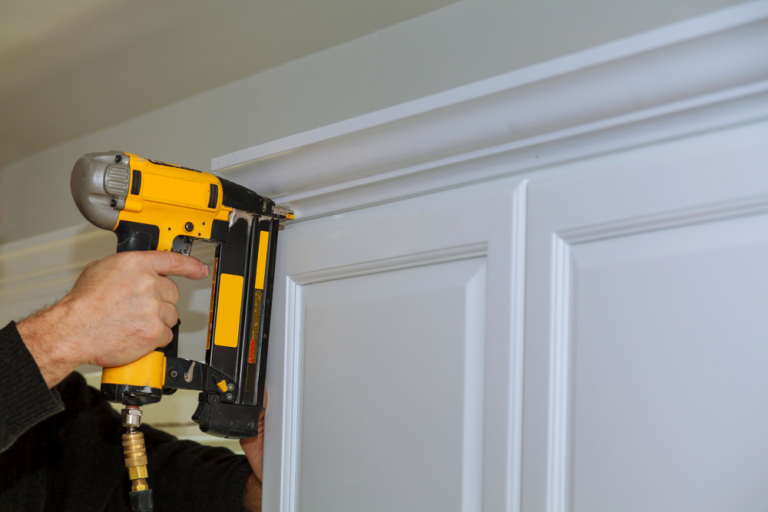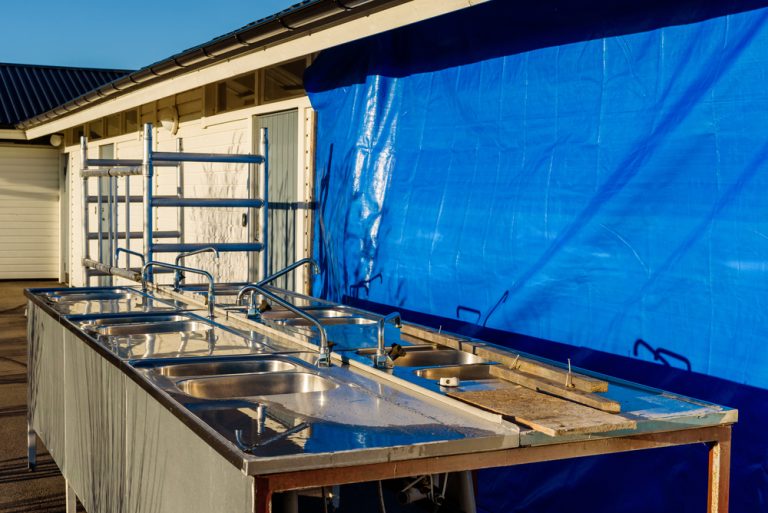Do I Need a Permit for a Kitchen Remodel?

Planning a kitchen remodel involves making numerous decisions, and one of the most crucial thing you ask is “do i need a permit for a kitchen remodel”. Navigating the permit process can seem daunting, but understanding the requirements can save you time, money, and potential legal headaches. Here’s an in-depth guide to help you determine if you need a permit for your kitchen remodel and how to ensure a smooth process.
Why Permits Are Crucial for Kitchen Remodels?
Permits are not just bureaucratic hurdles; they play a vital role in ensuring the safety, legality, and quality of your remodeling project. They help verify that the work meets local building codes and standards, which are designed to protect you, your family, and your home. Here’s why obtaining permits is crucial:
Safety
Permits ensure that electrical, plumbing, and structural changes are completed safely and according to code. This reduces the risk of hazards such as electrical fires, water leaks, or structural failures.
Legal Compliance
Building codes and regulations are enforced by local authorities. Obtaining permits ensures that your remodel complies with these regulations, avoiding potential fines or legal issues.
Home Value
Permitted work is typically documented, which can be beneficial when selling your home. Buyers and inspectors will often check for permits to ensure that renovations were done properly and legally.
When You Absolutely Need a Permit?
Certain kitchen remodels will almost certainly require a permit. These typically involve significant changes that impact the structure or systems of your home:
Structural Changes
If your remodel involves altering the layout of your kitchen, such as removing or adding walls, you’ll need a permit. This includes any changes to load-bearing walls that could affect the structural integrity of your home. For instance, if you’re opening up a wall to create an open-concept kitchen, you’ll need to ensure the new design can safely support the weight of the building.
Electrical Work
Major electrical modifications, including adding new outlets, changing the wiring, or upgrading the electrical panel, require a permit. This ensures that all work meets safety standards and reduces the risk of electrical fires. Electrical work often needs to be inspected to verify that it is up to code and safely installed.
Plumbing Changes
Significant plumbing changes, like relocating pipes, installing new fixtures, or modifying your water lines, generally require a permit. Proper plumbing work prevents issues such as leaks and water damage. For example, if you’re moving the location of your sink or dishwasher, you’ll need to ensure that the new plumbing setup is correctly installed and compliant with local codes.
HVAC Adjustments
If your remodel involves changes to the heating, ventilation, or air conditioning (HVAC) systems, you’ll likely need a permit. This ensures that your HVAC system operates efficiently and safely. This can include installing new ductwork or relocating HVAC units.
When You Might Not Need a Permit?
Not all kitchen remodels require permits. Minor changes or updates typically fall into this category:
Cosmetic Upgrades
Painting walls, replacing cabinet hardware, or installing new countertops usually don’t require a permit, as long as no structural or system changes are involved. These updates generally don’t impact the core systems of your home and are considered aesthetic improvements.
Minor Repairs
Small repairs or replacements that do not involve plumbing, electrical, or structural changes generally don’t need permits. This can include fixing a broken cabinet door or replacing a damaged tile.
Appliance Upgrades
Swapping out appliances, such as refrigerators or dishwashers, typically doesn’t require a permit unless it involves electrical or plumbing work. If the new appliances use the same connections as the old ones and no new wiring or plumbing is required, a permit is usually not necessary.
How to Determine Permit Requirements?
Permit requirements can vary significantly depending on your location and the scope of your remodel. Here’s how to determine if you need a permit:
Consult Local Building Codes
Check with your local building department or their website to understand specific permit requirements in your area. Building codes can vary widely between municipalities, so it’s important to get information that applies to your specific location.
Hire a Professional Contractor
An experienced contractor or remodeler can provide valuable insights into permit requirements and help you navigate the process. They can ensure that your project complies with local regulations and help you avoid common pitfalls.
Submit a Permit Application
If a permit is required, you’ll need to submit an application to your local building department. This process typically involves providing detailed plans of your remodel, paying a fee, and scheduling inspections. Be prepared to submit blueprints or drawings that outline the scope of your project.
Schedule Inspections
During the remodeling process, your project may need to be inspected by local authorities to ensure compliance with building codes. Inspections are usually scheduled at various stages of the project, such as after framing or plumbing work is completed.
Potential Consequences of Skipping Permits
Avoiding the permit process can lead to several serious issues:
Fines and Penalties
Performing unpermitted work can result in fines or penalties from your local building department. These fines can vary depending on the severity of the violation and the local regulations.
Insurance Complications
If unpermitted work causes damage, your homeowners’ insurance might not cover the costs, leaving you financially responsible. Insurance companies may refuse to cover claims related to unpermitted renovations.
Resale Challenges
When selling your home, unpermitted work can complicate the sale process and potentially reduce your property’s value. Buyers and inspectors will likely scrutinize unpermitted renovations, and you may need to rectify these issues before completing the sale.
Best Practices for a Smooth Permit Process
To ensure a smooth permitting process, follow these best practices:
Plan Thoroughly
Before starting your remodel, plan your project in detail. Ensure you know which aspects require permits and how to obtain them. Detailed planning helps avoid unexpected issues and ensures that all necessary permits are acquired.
Communicate with Authorities
Maintain open communication with your local building department. They can provide guidance, answer questions, and help you understand the requirements for your specific project.
Keep Records
Document all permit-related paperwork, including applications, fees, and inspection reports. This will be useful for future reference and during the home-selling process. Keeping thorough records helps demonstrate that your remodel was completed in compliance with local regulations.
Understand the Permit Process
Familiarize yourself with the permit application process, including any required documentation and fees. Understanding the process can help you prepare and expedite the approval timeline.
Additional Tips for Homeowners
Research Local Requirements: Different areas have different regulations, so it’s crucial to research and understand the specific requirements in your locality. This includes any zoning laws or additional regulations that might affect your remodel.
Consult with a Real Estate Agent: If you plan to sell your home in the near future, consulting with a real estate agent can provide insight into how unpermitted work might affect the value of your home.
Consider Future Renovations: If you’re planning additional renovations in the future, understanding the permit process now can help streamline future projects. Properly documented and permitted work can simplify future remodeling efforts.
Conclusion
Understanding whether “do i need a permit for a kitchen remodel” is essential for a successful and compliant renovation. By following local regulations, obtaining the necessary permits, and adhering to best practices, you ensure that your project is safe, legal, and adds value to your home. For personalized advice and to ensure compliance, consult with local building authorities or a professional contractor.
Ready to start your kitchen remodel? Make sure to check all permit requirements and prepare for a smooth and successful renovation!






